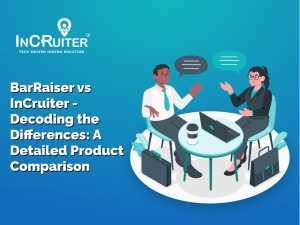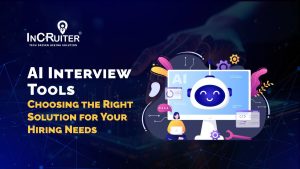
As an interviewer, it is crucial to be fully prepared when conducting interviews. Especially for technical fields that require extra effort and skills to find the right candidate. Data engineer interviews require a certain set of skills and experience when it comes to assessing candidates. These interviews deeply affect your capacity to create scalable systems, guarantee data quality, and generate meaningful insights.
In this blog, we will bring you the top 10 data engineer interview questions that will help you gauge a candidate’s technical skills. As an interviewer, these questions will help you understand whether the candidate is rightfully skilled and culturally fit for the role. Scroll through to read more.
Interview Questions for Data Engineers

Remember, technical proficiency is just one aspect of effective interviewing. Other crucial factors include problem-solving skills, flexibility, and familiarity with modern technology. By considering these aspects, you can hire a well-suited candidate. Let’s look at some of the important questions to ask.
Explain the difference between the ETL and ELT process.
As an interviewer, this question will help you assess candidates’ meticulousness and methods for upholding high data integrity standards throughout the ETL (Extract, Transform, Load) process. You go into detail and ask the candidate to explain the difference using examples.
How do you design a data pipeline for scalability?
This question will help assess candidates’ capacity to design scalable data infrastructure while ensuring data integrity. It allows them to showcase their foresight in constructing robust systems adapting to future growth. Demonstrating their strategic approach to data engineering will highlight their ability to anticipate and address potential challenges.
How do you optimize SQL queries for performance?
Evaluate the candidate’s skills in managing and enhancing database performance, a crucial aspect of data engineering. Look for their understanding of optimization techniques, experience recognizing and resolving performance issues, and ability to implement best practices for efficient data retrieval and storage.
Also Read: How to Identify Interview Frauds During the Hiring Process?
Discuss a scenario when you had to optimize a slow-running data process.
Through this question, you can evaluate candidates’ problem-solving skills and their ability to optimize data systems. This will help you understand how they identify performance bottlenecks, implement improvements, and ensure that data operations run smoothly and effectively. Candidates’ responses will provide insight into their technical expertise and practical experience.
As a data engineer, how do you handle data security and privacy at work?
This question will help you understand the interviewees’ data governance principles and their capability to implement robust security measures. It also examines their experience in maintaining compliance with data protection regulations and their ability to develop and enforce policies that ensure data integrity and confidentiality.
What is a data pipeline, and how do you ensure its reliability?
This question will help you get a basic idea of the candidate’s ability to design, implement, and maintain data pipelines. You can ask further questions related to this and how candidates work to make the process reliable.
Suggest some strategies for data backup and disaster recovery.
This question will help you gauge candidates’ ability to plan and respond to data loss or system failures, ensuring business continuity. This question also helps in assessing candidates’ problem-solving skills and presence of mind.
How would you handle a situation where your team receives inconsistent data from a third-party API?
This question evaluates problem-solving skills and the ability to manage external dependencies. It can test the candidate’s problem-solving skills and the ability to manage a team. Such questions are a must when conducting data engineer interviews.
How do you prioritize tasks when managing multiple projects with tight deadlines?
Time management and assessing soft skills are crucial when hiring for data engineer positions. Such questions will help evaluate candidates’ time management and organizational skills. As an interviewer, you must keep two to three soft skill assessment questions.
What data-related challenges is the company facing, and how can the data engineering team address them?
Asking about challenges helps understand if the applicant is prepared to tackle problems rather than just looking for a job. To fully comprehend their possible position and influence, this question might provide insight into the difficulties they will be handling and the company’s approach to managing and prioritizing them.
Also Read: Ever-growing demand for interview-as-a-service market post pandemic
Conclusion
Hiring for a data engineer position is not an easy task, but with the right set of questions, you can assess the right fit. Remember, your question list should have a mix of technical questions, questions to assess soft skills, and real-life scenario questions. By using these questions, you can have an overall understanding of the candidate’s skills and hire the right skilled candidate.
You can also leverage interview as a service that provides you with expert interviewers who are skilled in their domains. These interviewers are experienced and can conduct seamless interviews so that you hire the right candidates.
Frequently Asked Questions
Ans: Interview as a service is a service where you can outsource interviews to industry experts who have experience in conducting high-quality interviews. Interview services providers take care of everything from resume screening to conducting interviews and generating feedback reports.
Ans: In a data engineer interview, you can ask questions related to the role’s technical skills, problem-solving skills, and a few questions on soft skills.
Ans: Data engineers are required to have good programming skills, statistics knowledge, analytical skills, and an understanding of big data technologies.
Ready to Transform Your Hiring Process?
Discover how our AI-powered interview platform can streamline your recruitment and find the best candidates faster.






